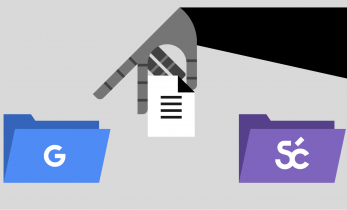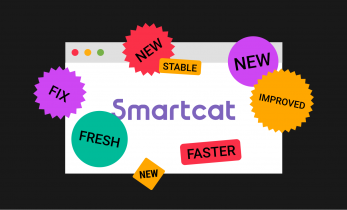Greater than 3 minutes, my friend!
The blockchain technology in the language industry Future applications, processes & transparency improvements
Blockchain technology, smart contracts and cryptocurrencies, such as Bitcoin or Ethereum, are a hot topic at the moment. Being one of the biggest technological advancements in the last decade and because of the transparency and security it can provide, blockchain technology is an ideal candidate for possible applications to improve payment delays, contract’s trustworthiness or cost-efficiency in many industries. In the language industry, the blockchain technology could have many applications to smooth transactions between Language services Providers (LSPs), clients and subcontractors and improve overall transparency.
How does blockchain technology work?
Blockchain technology is one of the biggest inventions since the internet itself. It allows value exchange without the need for trust or for a central authority. By removing the “middle-man” the transaction happens faster, with more transparency and cost-efficiency as no unknown fees are applied.

Infographics from blockgeeks.com
Blockchain specialist William Mougayar explains the technology with a simple Google Spreadsheet analogy: Imagine that you have a spreadsheet you’d like to share and update with your colleagues, now each one of them would need to have a version of that spreadsheet and update it and then send out again for revision. The problem with that scenario is that you need to wait until receiving a return copy before you can see or make other changes because you are locked out of editing it until the other person is done with it.
“That’s how databases work today. Two owners can’t be messing with the same record at once. That’s how banks maintain money balances and transfers; they briefly lock access (or decrease the balance) while they make a transfer, then update the other side, then re-open access (or update again). With Google Docs (or Google Sheets), both parties have access to the same document at the same time, and the single version of that document is always visible to both of them. It is like a shared ledger, but it is a shared document. The distributed part comes into play when sharing involves a number of people.”
Imagine the number of documents undergoing translation that could be used that way. Instead of passing them to each other, losing track of versions, and not being in sync with the other version. All translated documents could become shared instead of transferred back and forth between the translator, the reviewer, the local checker and the project manager.
What are the possible applications for the language industry?
Faster payments between parties
In the language industry, a job sometimes includes many different actors such as translators, project managers, reviewers, sub-contracted LSPs, sometimes located in different countries with different currencies. A blockchain system could mean faster payments to freelancers, providers and clients. By removing the middle-man of banks and their processes, rather than taking days, transactions could only take minutes through the internet blockchain system.
It could also have benefits for freelance translators in developing countries. Some experts have argued that the current lack of conventional pay systems, such as PayPal, denies many low-cost translators the chance to enter the industry. Access to blockchain-style cryptocurrency would mean these translators could be paid quickly and easily with minimal transaction cost.
Using smart contracts to increase transparency and trust
A smart contract is like a classic contract between parties except it is fully digital, it relies on blockchain technology to stay secure and public. Because the smart contract is stored in a blockchain technology, it is extremely hard to change its terms and impossible to do without other parties being notified. LSPs and clients sometimes work with complex contracts that involve many parties. By using smart contracts, parties can make sure that the terms of the contract are being respected at all times and that all transactions or actions triggered by the contract only take place when the contract is executed. For example, the translator gets paid only when the reviewer or the client has approved the translation or the translated content publication is only triggered when the client has approved the translation (in the case of a CMS integration for example).
Machine translation coupled with blockchain technology
As MT and more particularly NMT (Neural Machine Translation) are powering a growing number of translations, more customers but also LSPs working with freelancers will want to know if a machine has been involved in a translation and at which stages. We expect to see the demand for transparency and traceability in translations to increase over the next years, a system powered by blockchain technology could provide that information in a secure way and to expose that information only to the parties concerned.
Most applications for blockchain technology are still yet to be discovered, but surely the language industry is an ideal candidate where this technology could be implemented in various ways.




